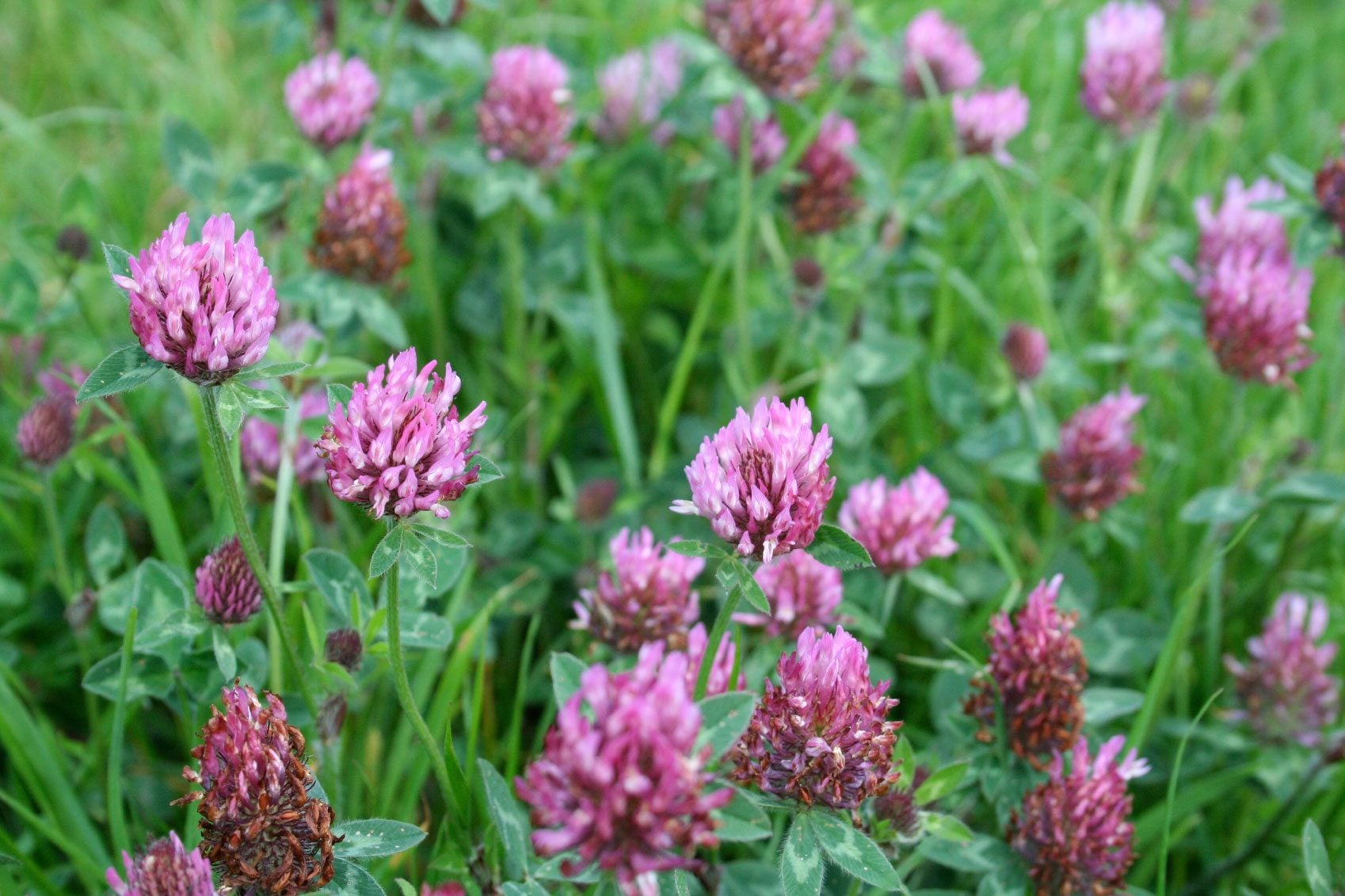Red Clover Growing In Lawns: Tips For Red Clover Weed Control And More


Red clover is a beneficial weed. If that's confusing, consider its propensity for populating areas in the garden where it is not wanted and add to that the plant's nitrogen fixing capabilities. It is a paradox; both a benefit and a pest whose presence in the landscape can be either planned or accidental. It is important to have full red clover plant info so you can make up your mind as to whether this plant is an angel or an imp.
Red Clover Plant Info
Red clover has naturalized to North America, although it originated in Europe. It establishes quickly, grows in almost any soil and is hardy in drought and cool temperatures. Red clover has lovely purple flower heads, which are produced in spring. Each head is made up of many small flowers. The plant itself may get up to 20 inches (50 cm.) high but generally has a more rangy creeping habit. The slightly hairy stems bear 3 leaflets characterized by a white chevron or “v” on each. It is a short-lived perennial but easily and freely establishes itself. The plant is a legume, which means it has the ability to fix nitrogen in soil. Farmers and gardeners all over use red clover as a cover crop and then till it in at springtime to release the nitrogen for use by other crops. In addition to cover crop or green manure, the plant is used as a forage crop and hay. It is also a healthy food and can be used as a tea, salad greens, or even dried and ground for flour. Red clover in yards is often considered a weed but its beneficial properties and beauty should be considered before the gardener pulls the plant.
Red Clover Growing for Nitrogen Release
As a legume, red clover secures nitrogen in the soil which is of benefit to all other plants. Legumes harbor a nitrogen fixing bacteria called Rhizobium in their tissues. The relationship is beneficial to both organisms and the nitrogen is released into the soil when the clover is composted. When red clover is used as a cover crop, it stops soil erosion, increases porosity, keeps weeds down and is then turned into the soil where it enriches it with the nitrogen loaded bacteria. Farmers and other soil management professionals know that red clover growing on land creates a better planting situation.
Red Clover Weed Control
If you are still not convinced that red clover is beneficial and simply must remove it from your garden, there are several methods of control. Red clover in yards can become invasive and take over wanted plant species. Professionals control red clover with tillage and applications of dicamba, if necessary. The home gardener will need to use an over the counter product deemed effective as red clover weed control. Always follow the instructions on the container and use any recommended cautions. Note: Any recommendations pertaining to the use of chemicals are for informational purposes only. Specific brand names or commercial products or services do not imply endorsement. Chemical control should only be used as a last resort, as organic approaches are safer and more environmentally friendly.
Sign up for the Gardening Know How newsletter today and receive a free copy of our e-book "How to Grow Delicious Tomatoes".

Bonnie Grant is a professional landscaper with a Certification in Urban Gardening. She has been gardening and writing for 15 years. A former professional chef, she has a passion for edible landscaping.